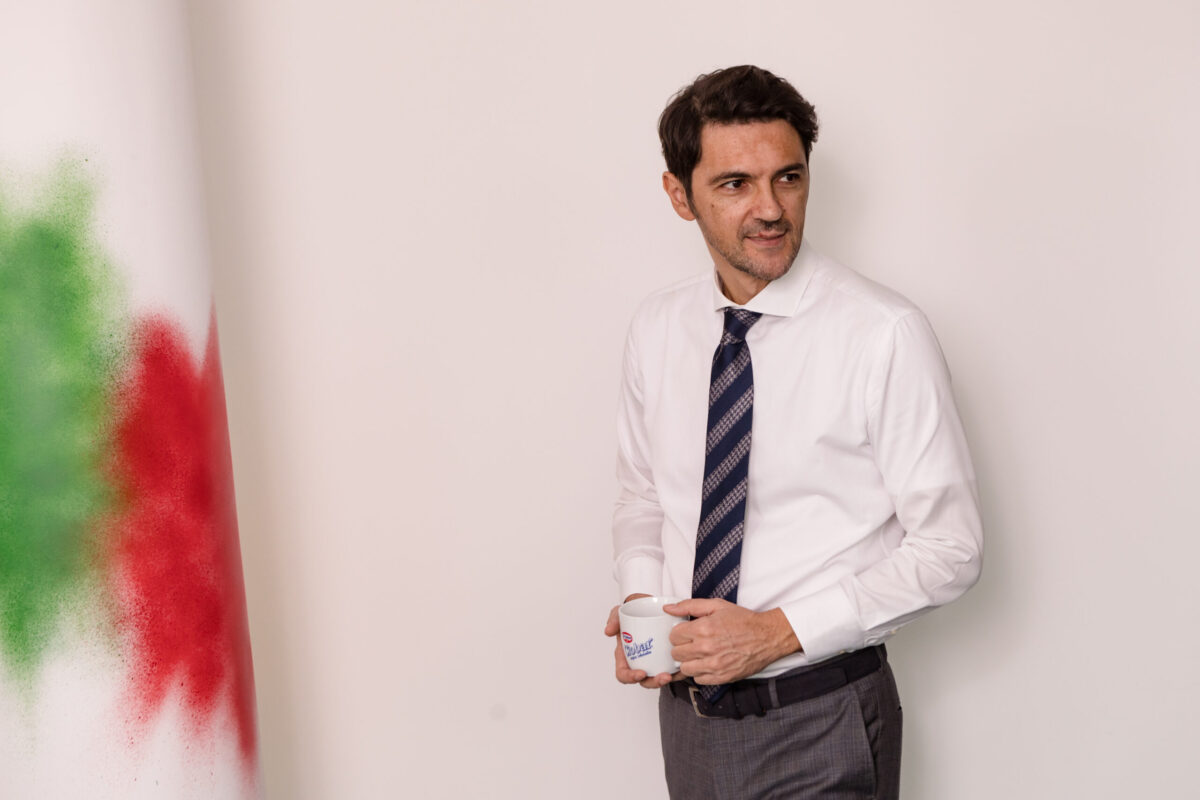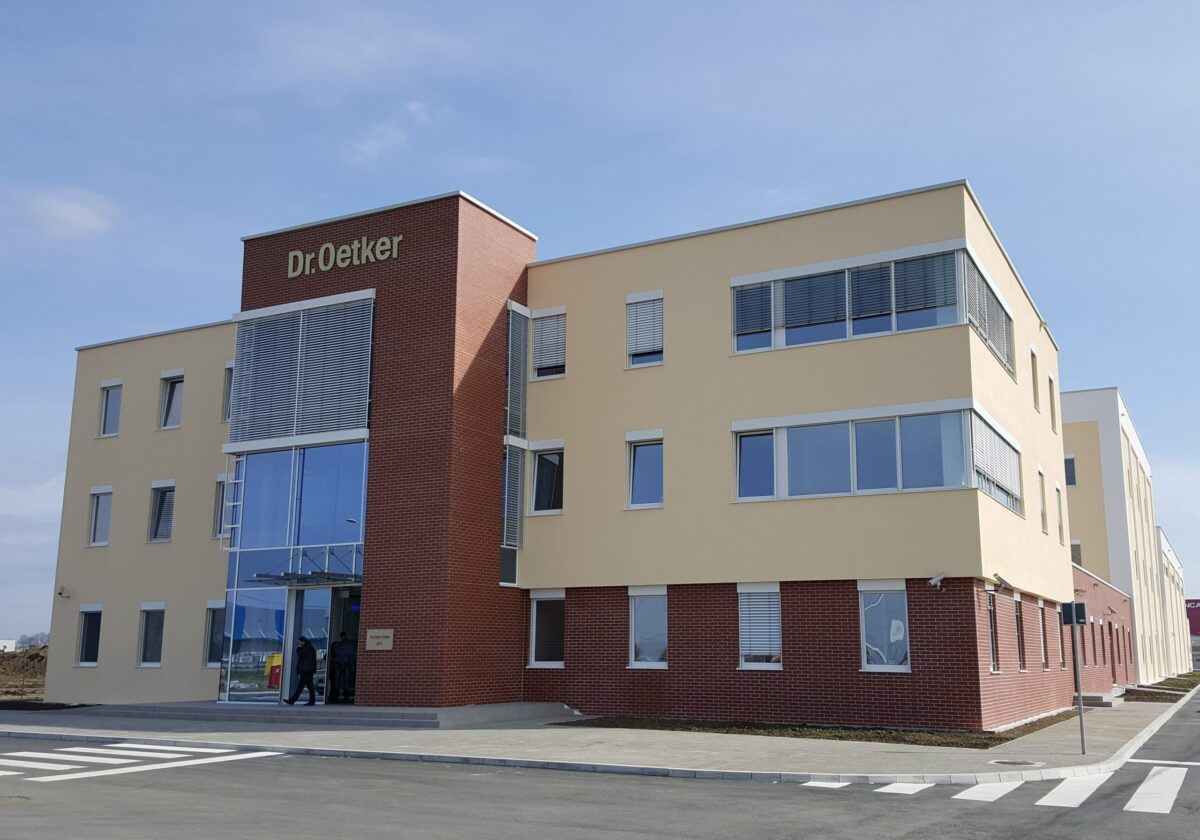Our tradition obliges us to continue to deliver quality, first and foremost, in every segment of our business, both to our consumers and employees, which means that we, as a company, must adapt to the time and environment in which we operate.
In his interview for Diplomacy&Commerce, General Manager of Dr. Oetker Serbia, Sanjin Laganin, talks about the secret behind the quality of Dr. Oetker’s products, environmental protection, changes in the company and future plans.

Dr. Oetker is synonymous with quality in its business segment. Housewives (and househusbands) usually opt for Dr. Oetker’s products, especially when making a good cake or a nice dish is very important to them. What is the secret behind Dr.Oetker’s products?
Speaking from my personal experience, I would say that the secret primarily lies in the fact that Dr. Oetker is strongly resolved to do everything that can be done in the process of creating a product to meet the needs of each consumer. The company’s founder, August Oetker, developed the company’s first product – baking powder – in 1891. His intention was to put in a sachet the measured amount of baking powder which, when mixed with 500 grams of flour and other ingredients, would make a cake. This means that Dr. Oetker puts consumers at the heart of its business.
Dr. Oetker’s participation in the Everyone Strives for Balance (Teži ravnoteži) campaign, which was dedicated to disease prevention with the help of a balanced diet and physical activity, was quite noticed. Also, Dr. Oetker Company has provided assistance for children and young people without parental care. How important is it for Dr. Oetker to take part in activities and campaigns in the environment in which it operates, which focus on social, sports, health and other topics of interest to society?
Our global strategy focuses on caring for the environment in which we operate, our employees and the sustainability of our business. In that sense, the cooperation with SOS Children’s Village has lasted for decades, and a few years ago, in addition to financial support, we started socializing with the orphaned children from the Village once a year because we wanted to dedicate time to them and raise awareness of our values through activities related to sports and environmental protection. This year, we went a step further and launched the If the Morning Shows the Day (Po Jutru se Dan Poznaje) in the business community during which we have been allocating funds for the education of the members of the Youth Community, the largest group in the Village that consists of teenagers. The main idea is to empower them and give them a chance to better position themselves in the labour market on time, as well as to show them that there are alternative ways of life to the choices they have ahead of them.
Dr. Oetker Serbia has been operating successfully for many years in Serbia and the region, and our results confirm this
Environmental protection is always a burning topic. How environmentally friendly is Dr.Oetker’s production?
As a socially responsible and environmentally conscious company, Dr. Oetker manages all its processes in a way that improves environmental protection. We are aware of the special responsibility we have towards people and nature. Our production plant in Šimanovci uses a packaging waste management system and every year we significantly contribute to reducing CO2 emissions and the greenhouse effects, as well as mitigating climate change.
Dr. Oetker Serbia uses only cocoa products that are certified in accordance with the requirements of the Rainforest Alliance, which is the most extensive programme in the world for the sustainable development of coffee, cocoa, tea and hazelnuts. Through this programme, we contribute to environmental protection and the survival of rare and very depleted natural resources, but we also directly contribute to solving one of the important problems in the world, and that is child labour and preventing children from attending school. Also, Dr. Oetker uses only RSPO SG certified raw materials that contain palm oil.
In 2020, we launched the Sustainability Charter, which comprises a total of 27 projects. Our interdisciplinary, local and international teams are working on these projects. The goals are grouped into three segments – Food, World and Company. We have set ambitious sustainability goals, while being mindful of our customers’ needs. Dr. Oetker wants to achieve climate neutrality, use fully recyclable packaging by the end of 2025, utilize renewable energy sources, invest heavily in improving nutritional profiles of products by reducing salt, sugar and fat by up to 20% and reduce the quantity of destroyed food in the supply chain, production and distribution by 25% by the end of 2025.
We assume that Dr. Oetker’s production is based on tradition when it comes to proven recipes, human and social values. On the other hand, to what extent does the company have to keep up with the trends, invest in the modernization of production, organization and management systems and similar things?
We are aware of the value of Dr. Oetker brand tradition that we have been building for more than 130 years. This tradition obliges every one of our employees to do their job in line with traditional values for them and our consumers. Our tradition also obliges us to continue to deliver quality, first and foremost, in every segment of our business, both to our consumers and employees, which means that we, as a company, must adapt to the time and environment in which we operate.
To make our consumers satisfied with our products, we use new technology in our production and have been continuously investing in the modernization of our production capacities. On the other hand, in order to remain an attractive employer to new generations of workers, we are consciously improving our corporate culture, digitizing processes and increasingly making decisions based on data we collect from the market. We want to be a dynamic organization, flexible and creative in which entropy is reduced to a minimum.
Improving organizational culture is one of the primary goals in the next two years. Organizational culture represents a competitive advantage in the current business environment, especially in circumstances where talent is lacking and where all companies are struggling to attract them
You have been recently appointed General Manager of Dr. Oetker Serbia. What was the situation like in the company when you took over this position and do you plan to implement significant changes in the company?
Dr. Oetker Serbia has been operating successfully for many years in Serbia and the region, and our results confirm this. I have been a part of the organization since 2011 when we acquired the C brand (the so-called confectionary product portfolio) and have participated in the development of the organization. So, the situation in the company is not unknown to me. On the contrary, I am very familiar with the overall state of the organization. We are a stable and well-organized company and have all the necessary resources for further growth. I am satisfied with all the above.
In terms of significant changes in our business, as I said earlier, we are an organization that constantly analyzes its processes that directly affect the business, then adopt and implement new strategies and evaluate changes. In that sense, we will certainly make changes in the business with the view of improving it.
What are Dr.Oetker Serbia’s plans?
Continuation of successful business operations through the expansion of the range, the introduction of new categories and optimization of the existing product range are our plans related to the product portfolio.
Improving organizational culture is one of the primary goals in the next two years. Organizational culture represents a competitive advantage in the current business environment, especially in circumstances where talent is lacking and where all companies are struggling to attract them. The key to transforming business culture is to put the right people in the right places and that is fundamental to building a long-term successful organization.
Digitization is the next goal in our plans. This entails using the existing infrastructure and improving all processes in order to make our decisions as much as possible based on the data we collect and the reports we create. We are also planning additional investments in our ERPi system.
Business transparency and environmental sustainability are our medium- term plans.
